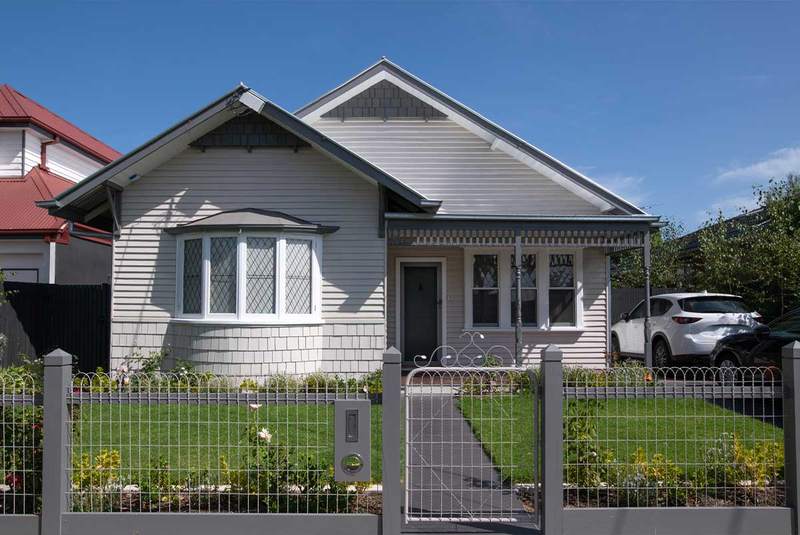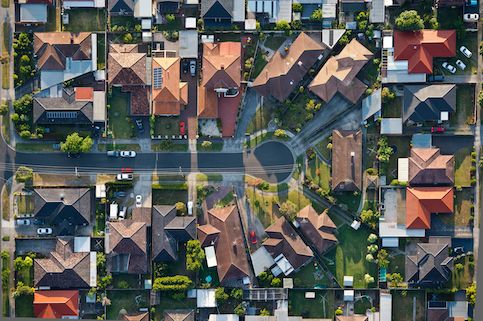Getting the lowest possible mortgage rate can make a big difference to your financial situation. But since changing market conditions mean that mortgage interest rates vary, it’s natural to wonder how to get the best mortgage rate.
Home Buyer’s Guide
Follow our step-by-step guide to learn how to buy a home.
Why Do Mortgage Rates Matter?
Mortgage interest is what your lender charges to originate and service your mortgage loan and is represented as a percentage. The interest rate attached to your home loan directly impacts your monthly payments. It also ultimately impacts how much interest you pay over the life of the mortgage.
A small difference in interest rates can significantly impact your homeownership costs.
How Much Of A Difference Does 0.25% Make?
When you shop for a mortgage, you might find slightly different rates available. The reality is that even a difference of 0.25% can change your total interest charges by thousands of dollars.
Below is a look at how different interest rates impact a $300,000 fixed-rate, 30-year mortgage. The monthly payment only includes principal and interest, not property taxes and insurance. It’s helpful to see the example, but consider experimenting with your own numbers using our mortgage calculator to see what your monthly payment will be with various interest rates.
Mortgage Rate | Monthly Payment | Total Payment |
|---|---|---|
7.75% | $2,149 | $773,975 |
7.5% | $2,097 | $755,787 |
7.25% | $2,046 | $737,238 |
7.0% | $1,995 | $719,307 |
6.75% | $1,945 | $701,123 |
6.5% | $1,896 | $682,786 |
6.25% | $1,847 | $665,080 |
To see the total amount you’ll pay on your loan with certain interest rates, use our amortization calculator.
See What You Qualify For
Buy A Home
Discover mortgage options that fit your unique financial needs.

Refinance
Refinance your mortgage to have more money for what matters.
Tap Into Equity
Use your home’s equity and unlock cash to achieve your goals.
Mortgage Types And Getting The Best Mortgage Rates
The type of mortgage you get can impact your mortgage rate.
Fixed-Rate vs. Adjustable-Rate Mortgage (ARM)
A fixed-rate mortgage comes with a locked-in rate for the life of the loan. In contrast, an adjustable-rate mortgage (ARM) has an interest rate that can change over time.
In general, ARMs offer lower introductory rates than fixed-rate home loans. While ARMs tend to have a lower starting interest rate, it is likely to rise after the introductory period.
15-Year Vs. 30-Year Mortgages
15-year mortgages tend to have lower interest rates than 30-year mortgages. The monthly payment attached to a 30-year mortgage is usually more affordable. But home buyers with a 15-year mortgage often pay less in interest due to the shorter loan term.
Conventional Vs. Federal Housing Administration (FHA) Mortgages
FHA mortgages are backed by the government. In general, this backing allows FHA lenders to offer more competitive interest rates than a conventional mortgage.
But it’s important to weigh all of the costs before moving forward with an FHA loan. FHA loans generally require mortgage insurance premium (MIP) payments. If you make a down payment under 10%, MIP stays on for the life of the loan. A down payment of at least 10% keeps it on for 11 years. By contrast, conventional loan borrowers might be able to eliminate private mortgage insurance (PMI) from their loan sooner – potentially saving them money over the life of the loan.
Home Buyer’s Guide
Follow our step-by-step guide to learn how to buy a home.
How To Get The Best Mortgage Rate
It’s clear that getting the best mortgage rate is a worthwhile priority for home buyers. If you are on the hunt to find the best mortgage rate, implementing the following strategies can help.
1. Improve Your Credit Score
With a better credit score, you’re likely to receive offers with better loan terms. Conversely, you’ll likely face a higher interest rate if you have a lower credit score. The good news is that it’s possible to improve your credit score before applying for a mortgage.
Start by checking your credit report for errors. If you spot any errors, report them to the credit bureaus for removal. Beyond that, make an effort to pay all of your bills on time and consider becoming an authorized user on a credit card in good standing.
2. Pay Down Your Debts
When you have a high debt burden, lenders may be unable to offer you the best mortgage rates. That’s because a lender will look at your debt-to-income ratio (DTI), which is the percentage of your income that you spend on monthly debt payments.
Lenders take your DTI into consideration when preparing a loan offer. If too much of your income is spent on current debt payments, you might struggle to afford your mortgage. Because of that, you’ll potentially be facing a higher mortgage rate.
If you have a high DTI, then you should take action and pay down your debts. The less debt you have on your books, the better. In most cases, the ideal DTI is 35% or lower.
3. Save For A Bigger Down Payment
A larger down payment can help you tap into a lower mortgage rate. Depending on the type of mortgage you choose, putting down a larger amount for your mortgage can be a worthwhile investment and save you money in the long run.
Some ways to beef up your down payment include lowering all discretionary spending, picking up extra hours at work, negotiating a raise, growing a side hustle or asking for a tax-free gift from family members. Another option is to seek out a down payment assistance (DPA) program, if you qualify. Just remember not all lenders accept all types of DPA programs.
4. Research First-Time Home Buyer Programs
If this is your first home purchase, you should research first-time home buyer programs available in your area. In many cases, you’ll find opportunities to secure a better interest rate through these programs.
Government-backed loans, like VA or FHA loans, can make owning a home more affordable while offering additional flexibility compared to a conventional loan. Many of these programs can also give buyers with lower credit scores an opportunity to qualify for a low mortgage rate and purchase a home with a smaller down payment and closing cost assistance.
Thankfully, there are several first-time home buyer programs to choose from. Nevertheless, it can be a challenge to figure out which program is right for your situation. If you need help, chat with a home loan expert to see what programs you may qualify for.
5. Consider Buying Points
Mortgage points can offer a way to lower your interest rate with little effort on your part. It just requires some extra cash. One point costs 1% of your loan amount and one point lowers your interest rate by 0.25%.
For example, let’s say you are purchasing a home with a $300,000 loan. You might have the option to lower your interest rate by 0.25% if you buy a mortgage point at a rate of $3,000.
If you plan to own the home for decades with a long-term mortgage, points can save you thousands of dollars over the life of the loan. But, buying mortgage points isn’t always the best solution.
If you plan to live in your house for just a few years, then adding point expenses to your closing costs is usually not the right move. Mortgage points always come with a break-even point in time, where you’ve reached total savings equal to the cost of the points. If you get another mortgage prior to the break-even point, the points won’t have saved you any money.
6. Improve Your Employment Income
As a lender evaluates your application, they will look at your employment income. Of course, a higher income from a traditional W-2 job is considered more favorable. If possible, consider negotiating for a raise.
7. Compare Lenders
As with all loans, it’s a great idea to compare lenders before moving forward with a particular loan.
Taking the time to look at several different loan options allows you to fully assess interest rates and terms between lenders. You should also take the opportunity to ask your prospective bank or credit union questions about their services and the benefits of working with them.
Before you dive in with the lowest interest rate offered, make sure to also consider any upfront fees involved and past client experiences with the lender. Plus, decide if you’re comfortable with the lender’s communication style. All are important factors to consider when moving forward with the loan.
Mortgage Rate FAQs
You have questions about today’s mortgage rates. We have answers.
Can I negotiate with a lender to get the best mortgage rate?
Yes. It’s possible to negotiate with a lender to lock in a better mortgage rate. However, the lender might not agree to any changes.
Can I get a better mortgage rate with a co-signer or co-borrower?
Adding a co-signer or co-borrower could help you get a better mortgage rate – but it depends on the creditworthiness of the co-borrower. If the co-signer has a great credit score and high income, then it could lead to a better mortgage rate.
Can I refinance to get a better mortgage rate later?
If interest rates fall, you may have the option to refinance into a better mortgage interest rate later if you qualify. However, it’s not a good idea to count on lower mortgage rates in the future.
The Bottom Line
Buying a home is a major financial decision, and the interest rate attached can make a world of difference financially. Before you move forward, assess where your finances stand and uncover any positive moves you can make. For example, you might decide to improve your credit score or shop around with different lenders before applying for a loan.
Take the first step to buy a home.
Quicken Loans® lets you get to house hunting sooner.

Sarah Sharkey
Sarah Sharkey is a personal finance writer who enjoys diving into the details to help readers make savvy financial decisions. She’s covered mortgages, money management, insurance, budgeting and more. She lives in Florida with her husband and dog. When she's not writing, she's outside exploring the coast. You can connect with her on LinkedIn.












